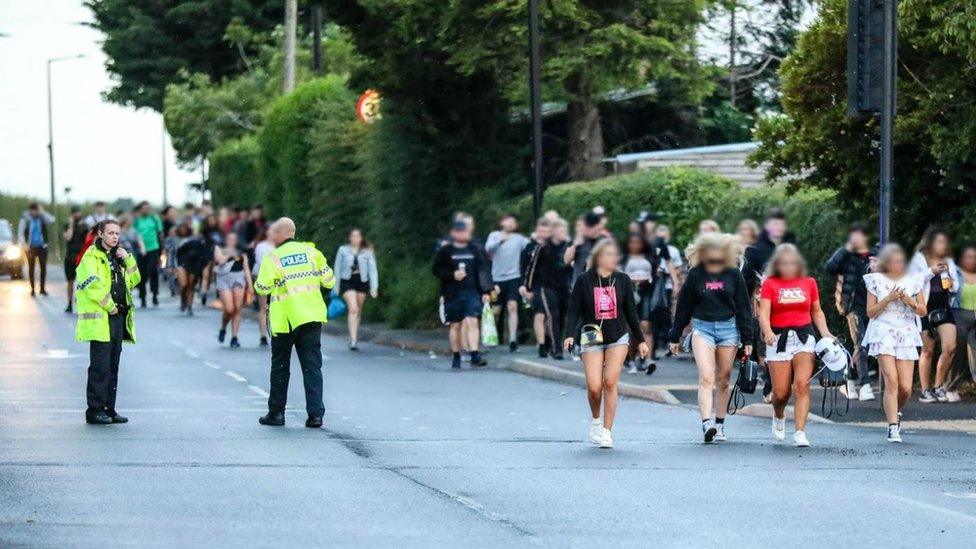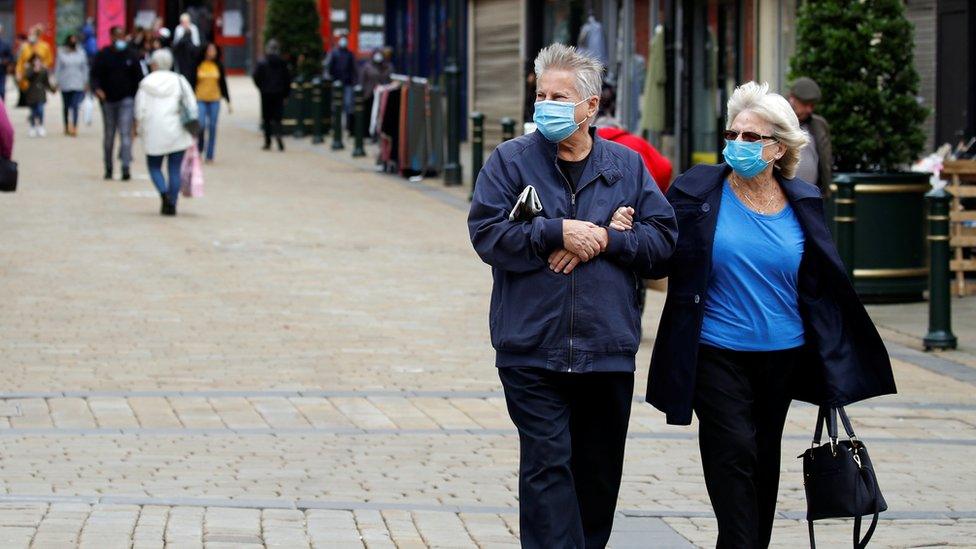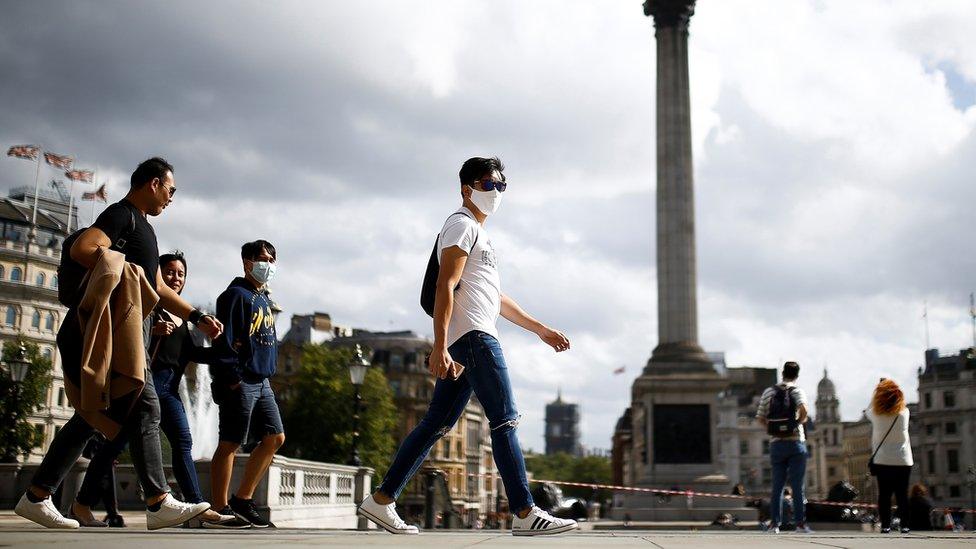Coronavirus: Illegal rave organisers face new £10,000 fines
- Published

Thousands of people attended an illegal rave in Greater Manchester in June
Police in England will be able to fine organisers of illegal gatherings of more than 30 people such as raves up to £10,000 from Friday, ministers say.
Those who attend gatherings and those who do not wear face coverings where it is mandatory can be given a £100 fine, doubling on each offence up to £3,200.
Scotland, Wales and Northern Ireland can set their own enforcement rules.
The government first unveiled plans for tougher penalties for those breaking coronavirus rules earlier this month.
Details of the stricter rules come after extra restrictions to stem the spread of Covid-19 were introduced in north-west England.
Overnight, police in Birmingham disrupted more than 70 unlicensed social gatherings including house and street parties, one of which featured marquees and a DJ.
In Huddersfield, officers broke up an illegal rave involving about 300 people, external.
Two police vehicles were damaged and four people arrested after officers broke up a party breaking lockdown rules in Greater Manchester, where restrictions between households continue.
About 50 people were at the gathering at a house, which had a gazebo set up with loud speakers, music equipment and party lights, Greater Manchester Police said.
And in Blackburn, Lancashire, where extra restrictions are also in force, more than 150 people gathered for a rave at a reservoir.
Rave culture in the UK has given us superstar artists and DJs like The Prodigy and Carl Cox
Home Secretary Priti Patel said: "These gatherings are dangerous and those who organise them show a blatant disregard for the safety of others."
She added: "We will continue to crack down on the small minority who think they are above the law."
The tougher rules have been welcomed by the National Police Chiefs' Council (NPCC).
Commander Ade Adelekan, NPCC lead for unlicensed music events, said those who organised such gatherings "irresponsibly put people's health and safety at risk".
He added: "To the organisers of this sort of activity, I strongly advise that you seriously consider the risks you're creating for everyone in attendance and the wider community. There is a risk of prosecution for those who organise these events and equipment will be seized."
Insp Andy Berry, chairman of the Devon and Cornwall Police Federation said "definitive powers" to help "control these large gatherings" were helpful, as his colleagues have been seeing an "incredible surge in demand".
Speaking to BBC Breakfast, he said: "We are a police force, we should be there primarily to deal with crime... what we don't want to do is break up children's birthday parties.
"We are seeing an unprecedented amount of calls coming in where neighbours are reporting these breaches and these demands are really bringing my colleagues and members to fatigue and breaking point," Mr Berry said.

SOCIAL DISTANCING: What are the rules now?
FACE MASKS: When should you wear one?
LOOK-UP TOOL: How many cases in your area?
GLOBAL SPREAD: Tracking the pandemic

The tougher penalties will also see those who flout rules around face coverings issued a larger fine - starting at £100 and doubling up to £3,200 for each repeat offence.
In England, face coverings are mandatory in many indoor settings, including public transport, shops and museums, with some exemptions for children or on medical grounds.
It comes after a further 18 deaths were recorded in the UK on Saturday, bringing the total number of people to have died within 28 days of testing positive for coronavirus to 41,423.
As of 21 August, the UK recorded 21.2 coronavirus cases per 100,000 people over the last fortnight, according to the European Centre for Disease Prevention and Control.
Sir Mark Walport, a member of the government's Scientific Advisory Group for Emergencies (SAGE), warned on Saturday that coronavirus would be present "forever in some form or another".
His comments come after the head of the World Health Organization, Tedros Adhanom Ghebreyesus, said he hoped the pandemic would be over within two years.
- Published22 August 2020

- Published22 August 2020

- Published22 August 2020
